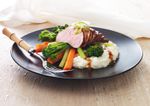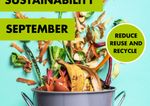How healthy is your 'natural' food?
by Alison McAleese, LiveLighter Victoria Campaign Manager and Dietitian
- August 25, 2016
- Leave a comment
It used to be ‘fresh’. Then it was ‘free from’. Now the latest buzzword in food marketing is ‘natural’ and supermarket shelves are bursting with a plethora of ‘natural’ foods derived from ‘nature’ and free from anything ‘artificial’.
But does ‘natural’ mean healthy? And can this buzzword help us spot a healthy food? LiveLighter decided to find out.
Half of ‘natural’ foods unhealthy
LiveLighter searched Coles and Woolworths online for products with ‘natural’ or ‘nature’ in the brand or product name or written on the pack.
We then assessed them against the Australian Guide to Healthy Eating (the government’s recommendation for a healthy diet).
Here’s what we found:
- 331 foods had a natural name or claim (that’s a lot of foods!) and almost half of those were unhealthy foods (also known as ‘discretionary’).
- 9 in 10 of the ‘natural’ foods in the ‘snack’ food aisles (e.g. chips, lollies, biscuits and muesli/nut/fruit bars) were unhealthy. They were very processed and most were high in sugar, salt or saturated fat.
- Only 1% of ‘natural’ claims were on vegetables – perhaps truly the most natural of all foods!
We also found that natural was used in three main ways:
- The brand or product name contains the word natural. This is the sneakiest one as it can then be applied to any type of product. Watch out for natural sounding brands and products, they might not be healthy.
- Packets covered in pictures suggesting ‘nature’. Greens and browns and pictures of farms, plants or animals. The packs also included the word natural or ‘no artificial colours’. Unfortunately having amazing graphic design still doesn’t make the product healthy.
- Descriptions of ‘nature’ or ‘natural’. Some packets described the ingredients as natural and others went even further, explaining the product has no added flavours or colours and perhaps even that the ingredients were ‘responsibly sourced’. While these aspects might be important to shoppers, it doesn’t make a product healthy. Think about what they aren’t telling you – Is it high in ‘natural’ sugar, salt or saturated fat? How processed are the ‘natural’ ingredients?
What does ‘natural’ actually mean?
That’s a tough question.
- The Food and Drug Administration (responsible for the safety of food in the US) says: “it is difficult to define a food product that is 'natural' because the food has probably been processed and is no longer the product of the earth”.
- The Food Standards Agency in the UK believes ‘natural’ should only be used “to describe single foods, of a traditional nature, to which nothing has been added [except to make them safe] for human consumption”.
- A recent Australian study, meanwhile, found “the term ‘natural’ is often used on food labels, but is unregulated in Australia”.
With such foggy instructions on how natural can be used, it’s no wonder the term ‘natural’ appears on so many products and is used in so many ways.
How can I find foods that are truly natural and healthy?
Don’t be alarmed. It is possible to buy foods that are truly unprocessed, natural and healthy. Here are my tips:
- Shop around the outside of the supermarket. The supermarket outer aisles are refrigerated and full of vegetables, fruit, chicken, fish, meat, plain dairy foods and eggs.
- Try your local stores. Shopping at markets, greengrocers and butchers can save you from sifting through the marketing hype on packaged foods and many local stores sell cheaper vegetables and fruit, meat, eggs and nuts.
- When buying packaged foods use the back of the pack. The front of a pack is full of marketing hype but the back is more factual. Scan the ingredients list for added sugars, animal fats, palm oil and salty ingredients – this can indicate it’s not a healthy food. The LiveLighter wallet card is a handy guide for reading the nutrition information panel which is also located on the back of the pack.
Now that you’re a natural guru you’ll probably notice it written everywhere. What other shonky ‘natural’ claims you have seen recently? Tell us in the comments below.






